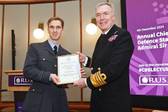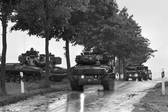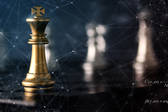Trench Gascoigne Essay Prize
RUSI's annual competition for original writing on contemporary issues of national and international defence and security.
Dating back to 1874, the Trench Gascoigne Essay Prize reflects and reinforces the Institute's status as a uniquely placed platform for free-thinking debate on defence and security. Awards are made on the basis of originality, logical argument, sound analysis, style, clarity and conciseness.
Each year essays are submitted by candidates in either of two categories:
- Students currently in full-time education
- Individuals in the first 15 years of their military career
The winner in each category receives an award of £1,000. The competition is open to entrants of any nationality. Essays may cover any topic related to national or international defence and security; entries addressing military problems and challenges are particularly welcomed.
Winners of the prize from previous years can be viewed below.
Previous years' prizes
See the winners from previous years.
Read the previous years' winning essays
2023 Winners: Reilly Joseph and Turner Ruggi
2022 Winner: Maurizio Recordati Koen
2021 Winner: William Parker
2020 Winner: William D James
















